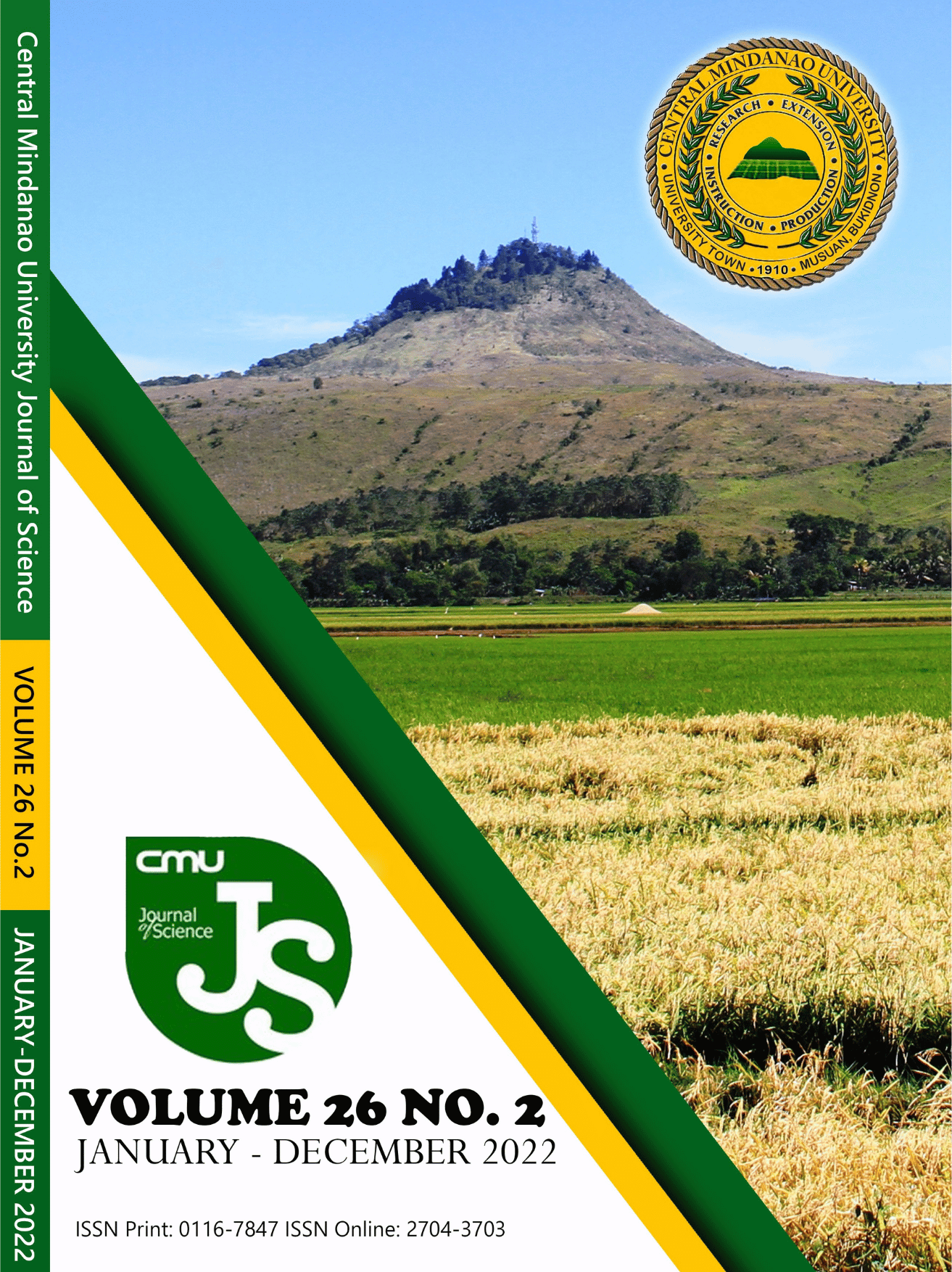Antibiofilm Activity of Erigeron floribundus (Kunth) Against Staphylococcus Aureus and Pseudomonas Aeruginosa
DOI:
https://doi.org/10.52751/umrt7147Keywords:
antibiofilm agent, invasive plants, Pseudomonas aeruginosa, Staphylococcus aureusAbstract
Antibiotic-resistant biofilm is a complex microbial community associated in the high risk of morbidity and mortality of hospitalized patients. The current study aims to determine the antibiofilm activity of invasive Erigeron floribundus plant extracts often known as "abas-abas" against Staphylococcus aureus and Pseudomonas aeruginosa. Bacterial strains were grown in M1 medium supplemented with fructose and cultivated for 24 and 48 hours at 30°C. Higher % biofilm inhibition was observed in gram-positive bacteria Staphylococcus aureus in most of the solvent use in extraction. Qualitative phytochemical screening was also evaluated and revealed the presence of tannins, flavonoid, saponins, steroid and the absence of alkaloid. The existences of these phytochemicals in the plant could be used to generate synthetic medications as a source of precursors. Moreover, this study also reveals that E. floribundus extract had antibiofilm action against the isolated nosocomial bacteria, implying that it could be used as an alternative to prevent microbial biofilm development.
Downloads













 LinkedIn
LinkedIn